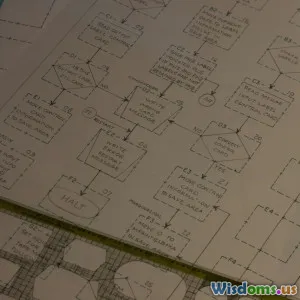
The Science Behind Motivation and Achievement
5 min read Explore the psychological principles that drive motivation and achievement in personal development. (0 Reviews)
The Science Behind Motivation and Achievement
Motivation is a fundamental driver of human behavior, influencing our actions, decisions, and overall success. Understanding the intricate dynamics of motivation can significantly enhance personal development and achievement. In this article, we will explore the science behind motivation, the different types of motivation, and practical strategies to harness this knowledge for personal growth.
What is Motivation?
Motivation can be defined as the process that initiates, guides, and maintains goal-oriented behaviors. It is the internal drive that propels individuals to take action toward achieving their goals. Psychologists often categorize motivation into two primary types: intrinsic and extrinsic.
Intrinsic Motivation
Intrinsic motivation arises from within an individual. It is driven by personal satisfaction, interest, or the inherent enjoyment that comes from the activity itself. For example, a person may engage in painting because they find joy in the creative process, rather than for external rewards.
Benefits of Intrinsic Motivation:
- Sustained Engagement: Individuals are more likely to persist in activities they find personally rewarding.
- Enhanced Creativity: When individuals are intrinsically motivated, they often think outside the box and are more innovative.
- Greater Satisfaction: Engaging in activities for their own sake leads to higher levels of satisfaction and well-being.
Extrinsic Motivation
Extrinsic motivation, on the other hand, is driven by external factors such as rewards, recognition, or the avoidance of negative consequences. This type of motivation can be effective in achieving short-term goals, but it may not lead to long-term engagement.
Examples of Extrinsic Motivation:
- Monetary Rewards: Earning a bonus for meeting sales targets.
- Recognition: Receiving an award for community service.
- Avoidance of Punishment: Completing a project on time to avoid disapproval from a supervisor.
Theories of Motivation
Several psychological theories explain how motivation works and how it can be fostered:
1. Maslow's Hierarchy of Needs
Abraham Maslow's theory posits that human needs are arranged in a hierarchy, from basic physiological needs to self-actualization. As individuals fulfill lower-level needs, they become motivated to pursue higher-level needs, which include personal growth and achievement.
2. Self-Determination Theory
This theory emphasizes the role of intrinsic motivation and posits that individuals are most motivated when they feel autonomous, competent, and connected to others. Fostering environments that support these needs can enhance motivation and achievement.
3. Goal-Setting Theory
Edwin Locke's goal-setting theory highlights the importance of setting specific, challenging goals to enhance motivation. Individuals who set clear and ambitious goals are more likely to achieve higher performance levels than those who do not.
Practical Strategies for Enhancing Motivation
Understanding the science of motivation is only part of the equation; applying this knowledge is crucial for personal development. Here are some strategies:
1. Set SMART Goals
Use the SMART criteria (Specific, Measurable, Achievable, Relevant, Time-bound) to create clear goals that enhance motivation and focus.
2. Cultivate Intrinsic Motivation
Find activities that you are passionate about and that align with your values. Engage in them for the joy they bring rather than for external rewards.
3. Create a Supportive Environment
Surround yourself with supportive individuals who encourage your growth. Building a community can enhance motivation through shared experiences and accountability.
4. Celebrate Small Wins
Recognizing and celebrating your progress, no matter how small, can boost motivation and reinforce positive behavior.
Conclusion
The science behind motivation is a multifaceted field that offers valuable insights into how we can enhance our achievements in personal development. By understanding the types of motivation and applying practical strategies, individuals can cultivate a powerful drive that leads to success. Whether through intrinsic satisfaction or the pursuit of external rewards, tapping into the complex mechanisms of motivation can transform aspirations into reality. Embrace the journey of personal growth, and let motivation be your guiding force.
Rate the Post
User Reviews
Popular Posts



















